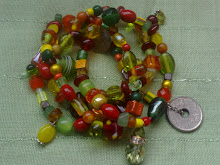After an unsettling few days and bad news, books have been my escape and a source of relief more than ever. The only problem was that I was struggling to really get into any book I picked up. I started and left sitting on my bedside table Midnight in the Garden of Good and Evil by John Berendt, Duma Key by Stephen King and The Book Thief by Markus Zusak all good books, but which needed me to concentrate. I had Escape sitting on my shelf and although I was wary from looking at the cover that it was another victim abuse story which I tend to avoid, I decided to give it a go.
I was fairly pleasantly surprised. The book details the life of the author within the Fundamentalist Church of Jesus Christ of Latter Day Saints, one of the largest Mormon fundamentalist denominations, separated from the main Mormon Church because of refusal to give up polygamy. She describes her early life within the community, marred by her unhappy and often violent mother but salvaged by her deep belief in the faith’s precepts, her pride in its history and her passion for learning and hope to become a pediatrician.
She describes her positive view of polygamy, her fathers own two wives and the concept of love between “sister-wives”. Although the faith and their “Prophets” edicts are accepted without question, Carolyn and her friends are still savvy enough to look for ways to avoid being married to an old man, including causing a stampede of running girls if any old man tried to approach at a dance (a very funny scene in the book).
Her hopes are dashed when the leader of the community receives “divine prophecy” that she is to be married to a thrice-married elder of the community and although an illusion of choice of marriage partner for women is maintained, the reality becomes apparent when she is constantly watched and pressure is applied to ensure the marriage goes ahead. Up until this point in the book, the FLDS Church does not come across too badly, after the marriage this changes. Carolyn’s husband is as bad as you can imagine, cold, greedy and vicious. Most of the rest of the book details the downside of polygamy (eventually there are six wives living in one house): the endless pregnancies, the neglect of children, rivalry, bullying and abuse within the family, the lack of medical care and basic provisions at times and the absolute and utter powerlessness of women in this community. Complaints from women are ignored and their abuse publicly paraded as a sign of their inability to please their husbands (who also happen to be the ones who decide if they can go to heaven). Women cannot leave because the local Police is mainly FLDS and the community runs watch patrols. Even the local ambulance staff are FLDS and will refuse to take women or their children to hospital without the fathers consent.
In the background to this story is the emergence of a new leader of the community, Warren Jeffs, paranoid and disliked, issuing more and more oppressive edicts and ex-communicating and terrorising more and more people. At this point I began to think of David Koresh and his Branch Davidians and even young women in the community joke about not drinking punch – a reference to Jim Jones, the Peoples Temple leader who murdered over 900 people with poisoned punch.
The book describes seventeen years of Carolyn’s married life, the birth of her eight children (one of whom is severely ill), her loss of faith through the constant abuse and unhappiness in the community and the escalating cruelty of its leader and at last her torturous escape and the effort involved in fighting for custody of her children against a group willing to throw millions of dollars into the fight to frighten other women from attempting anything similar.
The book is insightful and compelling. I was aware of unique communities like the Amish and Mormon’s and also of Polygamy amongst Christians, but nothing like this. The minutiae of life in a Polygamist setting itself was such an eye-opener. The book is gripping, interesting and sometime harrowing, at times it had me very indignant at the way women were being trapped, not always by their own faith, but by the sheer strength and wealth of the FDLS. When you think of the lack of control over their lives and bodies these women have to endure, it seems completely incongruous with our image of the US.
I was fairly pleasantly surprised. The book details the life of the author within the Fundamentalist Church of Jesus Christ of Latter Day Saints, one of the largest Mormon fundamentalist denominations, separated from the main Mormon Church because of refusal to give up polygamy. She describes her early life within the community, marred by her unhappy and often violent mother but salvaged by her deep belief in the faith’s precepts, her pride in its history and her passion for learning and hope to become a pediatrician.
She describes her positive view of polygamy, her fathers own two wives and the concept of love between “sister-wives”. Although the faith and their “Prophets” edicts are accepted without question, Carolyn and her friends are still savvy enough to look for ways to avoid being married to an old man, including causing a stampede of running girls if any old man tried to approach at a dance (a very funny scene in the book).
Her hopes are dashed when the leader of the community receives “divine prophecy” that she is to be married to a thrice-married elder of the community and although an illusion of choice of marriage partner for women is maintained, the reality becomes apparent when she is constantly watched and pressure is applied to ensure the marriage goes ahead. Up until this point in the book, the FLDS Church does not come across too badly, after the marriage this changes. Carolyn’s husband is as bad as you can imagine, cold, greedy and vicious. Most of the rest of the book details the downside of polygamy (eventually there are six wives living in one house): the endless pregnancies, the neglect of children, rivalry, bullying and abuse within the family, the lack of medical care and basic provisions at times and the absolute and utter powerlessness of women in this community. Complaints from women are ignored and their abuse publicly paraded as a sign of their inability to please their husbands (who also happen to be the ones who decide if they can go to heaven). Women cannot leave because the local Police is mainly FLDS and the community runs watch patrols. Even the local ambulance staff are FLDS and will refuse to take women or their children to hospital without the fathers consent.
In the background to this story is the emergence of a new leader of the community, Warren Jeffs, paranoid and disliked, issuing more and more oppressive edicts and ex-communicating and terrorising more and more people. At this point I began to think of David Koresh and his Branch Davidians and even young women in the community joke about not drinking punch – a reference to Jim Jones, the Peoples Temple leader who murdered over 900 people with poisoned punch.
The book describes seventeen years of Carolyn’s married life, the birth of her eight children (one of whom is severely ill), her loss of faith through the constant abuse and unhappiness in the community and the escalating cruelty of its leader and at last her torturous escape and the effort involved in fighting for custody of her children against a group willing to throw millions of dollars into the fight to frighten other women from attempting anything similar.
The book is insightful and compelling. I was aware of unique communities like the Amish and Mormon’s and also of Polygamy amongst Christians, but nothing like this. The minutiae of life in a Polygamist setting itself was such an eye-opener. The book is gripping, interesting and sometime harrowing, at times it had me very indignant at the way women were being trapped, not always by their own faith, but by the sheer strength and wealth of the FDLS. When you think of the lack of control over their lives and bodies these women have to endure, it seems completely incongruous with our image of the US.
































Look like it's a good book, and I would like to read that book, where did you get it from? My older sister would love the book.
ReplyDeleteSalams Tayyib, it is quite a good book, bit old for you though. You're older sister can borrow it from me, she might enjoy it.
ReplyDelete